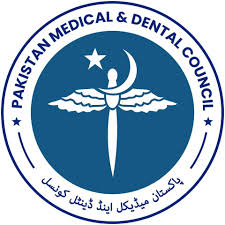Maternal Environmental Factors Associated with Congenital Hydrocephalus
DOI:
https://doi.org/10.37018/JFJMU/ADN/6524Keywords:
Congenital, Congenital hydrocephalus, Maternal factorsAbstract
Background: Congenital hydrocephalus is characterized by dysregulated cerebrospinal fluid circulation and is associated with serious morbidity. The objective of this study was to identify the various maternal factors related to the occurrence of congenital hydrocephalus.
Patients and methods: This was a retrospective study conducted at the University of Health Sciences, Lahore (UHS) and Children’s Hospital and Institute of Child Health. A total of 96 patients of congenital hydrocephalus along with their mothers were enrolled in this study. Data was collected by using proforma for history taking from mothers regarding antenatal period and family history details. Collected data was entered, processed, and analyzed in SPSS version 21.0.
Results: The mean maternal age of the participants was 27.88 ± 5.36 years. The results of maternal parity showed a mean of 2.85 ± 1.86 children. A history of self-medications including analgesics, over-the-counter antibiotics and herbal medicines used in the first trimester was found in 53 (55.2%) mothers. Eighty (83.3%) mothers did not take folic acid supplementation during pregnancy compared to only 16 (16.7 %) mothers who regularly took folic acid. No mother was reported to be a smoker or alcoholic. A family history of congenital HCP was reported by 10 (10.4%) mothers. Consanguinity history showed that 40 (40.7%) patients had consanguineous marriages while 56 (58.3%) had non-consanguineous marriage histories.
Conclusion: The common maternal factor associated with the occurrence of congenital hydrocephalus was the lack of regular folic acid supplementation during antenatal care.
Downloads
Published
How to Cite
Issue
Section
License
The Journal of Fatima Jinnah Medical University follows the Attribution Creative Commons-Non commercial (CC BY-NC) license which allows the users to copy and redistribute the material in any medium or format, remix, transform and build upon the material. The users must give credit to the source and indicate, provide a link to the license, and indicate if changes were made. However, the CC By-NC license restricts the use of material for commercial purposes. For further details about the license please check the Creative Commons website. The editorial board of JFJMU strives hard for the authenticity and accuracy of the material published in the journal. However, findings and statements are views of the authors and do not necessarily represent views of the Editorial Board.

















